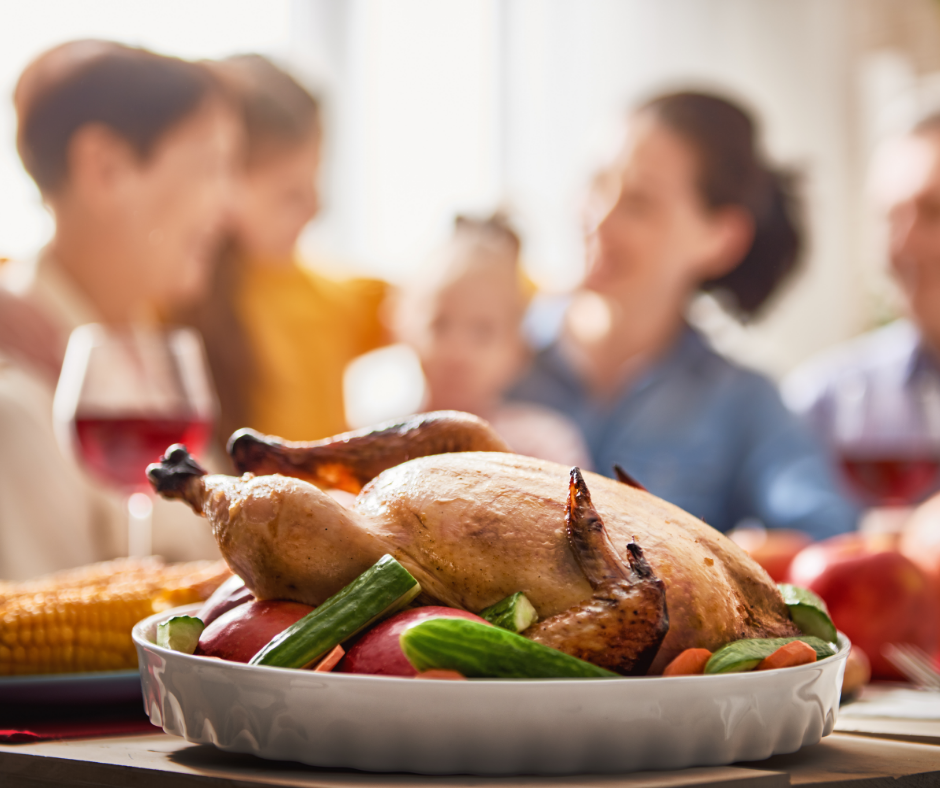
Happy (almost) Thanksgiving! With the world the way it is today, Thanksgiving might look a little different this time around. However, a few things probably will remain the same: It still takes longer than you expect to thaw that turkey, and family-related stress still doesn’t take a holiday.
Thanksgiving, perhaps more than any other holiday, can involve equal measures of gratitude and stress. It’s possible to simultaneously feel truly grateful for your blessings large and small and resentful and angry toward a family member sitting right next to you.
That’s because there are a host of unrealistic expectations associated with this holiday. First of all, everyone has an opinion about how Thanksgiving should be done. To stuff or not to stuff that turkey that you will either roast or deep fry? Fresh cranberry sauce or canned? Pecan pie or pumpkin?
And that’s just the food!
If your family is like most families (imperfect), they will bring issues to your bountiful table, and these are not the kinds of things the Butterball Turkey Talk-Line can solve.
All families are different, of course, but most of us have at least one of these:
- The faultfinder (aka the naysayer) who is never satisfied with anything—the food, other family members or even life in general.
- The gossip who delights in sharing other people’s misery.
- The family historian who remembers (and routinely brings up) every transgression, every misstep and every financial problem.
- The teenagers who can’t be bothered to even look up from their phones or tablets.
- The fact that you might be sleeping in your childhood bed with your spouse. How weird is that?
Resolve to stay above the fray and out of the line of fire! Here are a few coping strategies:
First of all, follow the simple, yet effective, etiquette tip, and treat family like friends and treat friends like family (all year long but especially right now). Think about it: Most people would never insult a friend, but they have no problem being hurtful to family members.
Link expectations to reality and be prepared. You already know how other people act; don’t allow them to control how you react.
Assign a “handler” to particularly bothersome family members. That person can water down the imbiber’s drinks or smooth over nasty comments. (This handler should be rewarded for a job well done.)
Use place cards to separate people who don’t get along, or have your holiday meal in a public space where people tend to be better behaved.
End dinner early so the kids can play outside, the adults can go for a walk, and the teens can relax and text all they want.
Anticipate how relatives might push your buttons. If one sibling is an attention grabber, give him or her a leadership role for that day.
Be kind to yourself, and even set some satisfying goals. If you enjoy talking to grandma, make time to talk to grandma. If you like playing ball with your nieces and nephews, go out and do it.
Distraction works for both children and adults. Change the subject before things get heated. Use humor to diffuse a situation. Start a tradition of playing cards or dominos.
Finally, don’t expect perfection. It simply won’t happen. Focus your attention and energy on what you can control. If you can’t control it, move on to another conversation or another room.
And remember: There is always something to be thankful for, so be thankful for that something.
Recent Comments